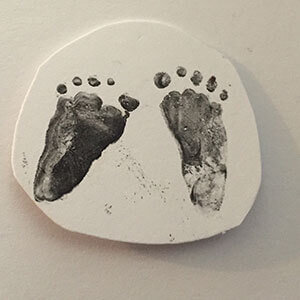
[Photo: Baby Emmett’s footprints]
This has been one of the hardest years of my life. It all started on Jan. 24, 2016: my 35th birthday. My husband and I saw those two little lines on a pregnancy test. After eight years of marriage, a cross-country move and buying a house in rural New England, we were pregnant with our first child! We shared our news with family and very close friends, and were beginning to baby-proof our house.
However, our fairytale story of becoming a family of three didn’t come with the happy ending we had expected.
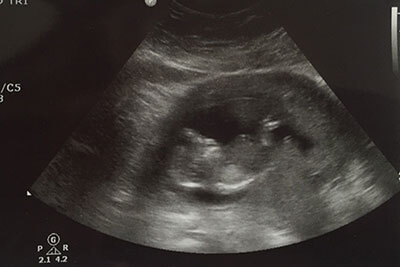
In late March, we went for our first ultrasound. Everything seemed perfectly fine, until the technician told us to go upstairs and meet with our obstetrician. She told us that, likely due to a chromosome abnormality, our baby had developed a cystic hygroma (a large, fluid-filled mass that develops on the fetus’ neck) and fetal hydrops (an accumulation of fluid inside the baby’s organs). In most cases, our doctors informed us, pregnancies wouldn’t make it past the first trimester with these two types of conditions since the mother’s body would naturally miscarry. Our baby was beating the odds. But, the chances of our pregnancy making it full-term were low, and there were risks to both the baby and me.
We went from being perfectly elated seeing our baby bouncing on a TV monitor and hearing a heartbeat over the speakers, to being utterly heartbroken and devastated in a matter of minutes. It was like we had had the air sucked out of our lungs while someone kicked us in the gut at the same time.
Over the next few weeks, I scoured internet discussion boards to research stories from families with the same diagnoses, almost all of them had tragic endings – either the pregnancy didn’t go full-term or, if it did, the baby only lived a few minutes. We hoped for a miracle.
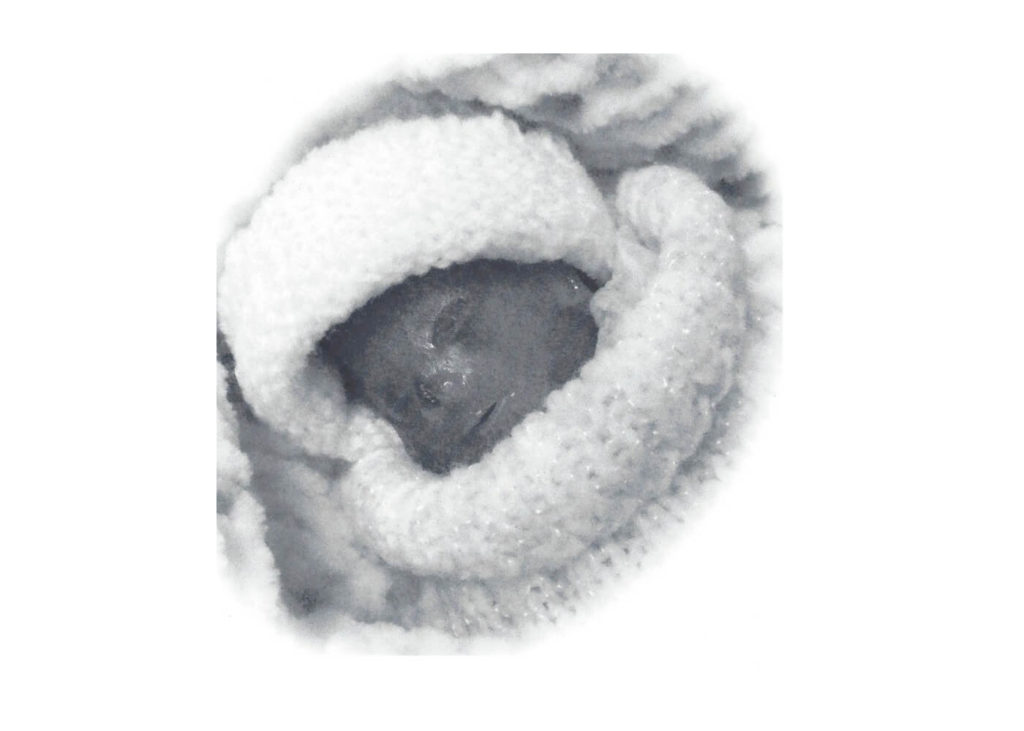
Sadly, on April 26, 2016, at 12:50 a.m., Emmett John Michael Finnell was stillborn at 18.5 weeks. He weighed only seven ounces but he was perfect. The nurses wrapped him in a teeny knit blanket and hat, like a cocoon, to keep his body warm. We held him and took pictures for the next 18 hours, knowing this was going to be all of the time we would ever have with him. It would be the only time that we would ever be a family of three together.
When it was finally time to leave the hospital, I had to leave my baby and never see him again. I thought that day was the hardest of my life but didn’t realize the days over the next year would be some of the most difficult I have ever faced.
A few months after losing our son, I began a blog called “Missing Emmett”, which follows my personal grief journey. While my original goal of the blog was as a mechanism to cope and address my own feelings toward his loss through writing, the blog now has grown into a beacon of hope for others who have experienced loss and as an educational tool for those who are unfamiliar with what this type of grief and experience can do not only to the mother, but the father and the rest of the child’s family.
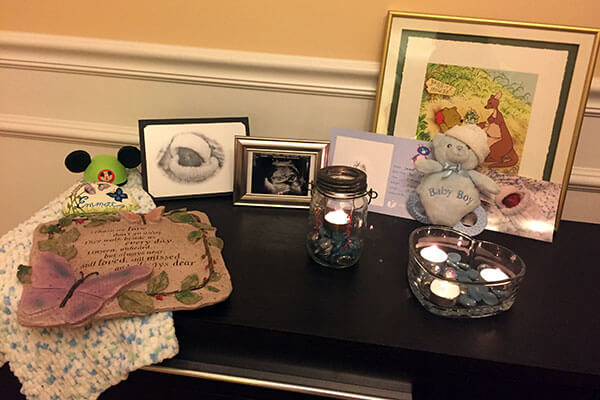 As I write this, we’ve just celebrated Emmett’s first birthday in heaven. So many things have changed about my husband and me in the past year, and we have learned so much about ourselves, the realities of losing a pregnancy and the subsequent aftermath, and how grief affects people differently:
As I write this, we’ve just celebrated Emmett’s first birthday in heaven. So many things have changed about my husband and me in the past year, and we have learned so much about ourselves, the realities of losing a pregnancy and the subsequent aftermath, and how grief affects people differently:
1. Not all pregnancies are happy endings but you don’t have to experience loss alone.
It seems like nearly every pregnancy in contemporary media goes full-term and results with a happy baby. I was naïve and fell for that mirage. I thought once we made it out of the first trimester everything would go smoothly. I didn’t know that 1 out of 4 pregnancies ends in a loss, according to The TEARS Foundation. Because our society doesn’t talk openly about this kind of loss, we were completely unprepared for the physical and mental anguish that would immediately follow Emmett’s loss.
Finding proper support after our loss was instrumental and continues to be part of our daily routine. We’ve relied on the assistance from behavioral health therapists to deal through our feelings, and most importantly, trained peer companions and support groups from a national nonprofit organization, for bereaved parents. Being able to connect with other moms and dads who have lost pregnancies or infants has proved indispensable to mending our lives back together.
2. Keep treading water through your grief.
At the beginning of this journey, I felt like I was alone in a vast, somber ocean with waves toppling me over every second and wanting to break me. I struggled to reach for the surface for a few months feeling so isolated, guilty and helpless. Everything made me burst into tears. Then, those moments didn’t come so frequently and I could tread water relatively well. Suddenly, a tsunami of despair swept me back again into the darkness and sorrow.
There are always going to be those ebbs and flows of grief. I’m never going to stop grieving for Emmett. He will always be my baby. It’s just those moments of calm eventually become longer between the stormy ones, and I’ve come to learn what triggers a sudden surge of emotions.
3. Don’t be so hard on yourself.
If you’ve lost a pregnancy or a child, there are going to be moments where you want answers and no one will be able to provide them. There are going to be times when you are extremely angry at your situation. You will have days where you just don’t want to get out of bed.
One of the things that other “angel mommies” who I have met in the last year tell me whenever I’m having a bad day is, “Be kind to yourself.” I’m my hardest critic and probably always will be. But, sometimes, I just need to slow down and say, “Enough.” Whatever I can do at that moment or that day just needs to be enough for me and for everyone else.
Grief is different for every person. For some people, it will set in immediately. Others won’t be able to fully grieve for years and years. Just like each snowflake that falls in a winter storm, each person’s grief is unique to them and it should be their own journey to explore. You will need to find out how you want to grieve and what’s right for you and your beliefs in remembering your child.
After leaving that hospital in 2016, I never imagined that life would get even harder. I still have those moments where I think about the what-ifs and all the milestones that will never be; the holidays, the birthdays, the first days of school. At first, I couldn’t stop the overwhelming feelings of guilt from consuming me and how I let down
my husband, my family and everyone by not being able to carry my pregnancy to full-term and bring a healthy child into this world.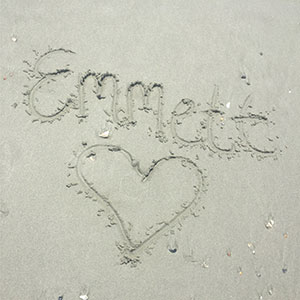
A year later, I’ve come to see how much stronger this experience has made me as a woman and as a person. Telling my story through a little blog is no longer just about expressing my emotions and grief but it has turned into a way to channel one of life’s worst experiences into something positive. My hope is that by sharing Emmett’s story, I can help spark a new conversation that can end the stigma that comes with talking about miscarriage and infant loss, and break the damaging cycle of how our society deals with grief following the death of a baby. I hope I can help just one other angel mommy out there feel less alone on her journey.
This piece was submitted as part of the GrokWithUs initiative, designed to highlight the stories and experiences of GrokNation readers.
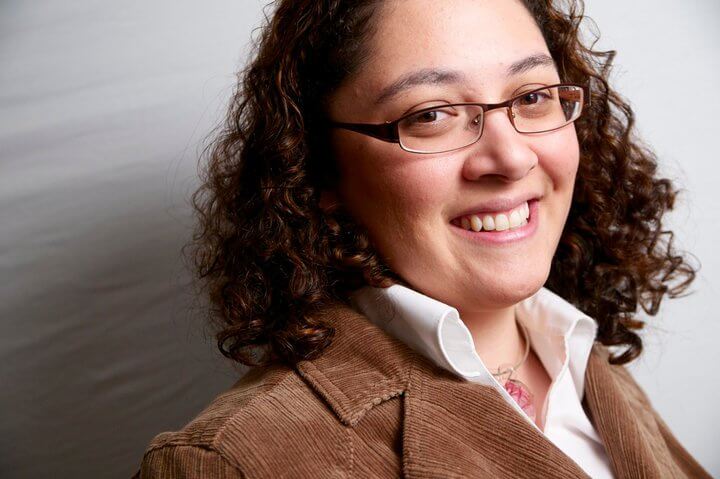
Christina Relacion lives in Massachusetts with her husband Brett and dog Dakota. She lost her son Emmett at 18.5 weeks due to issues with a chromosome disorder, fetal hydrops and cystic hygroma. Christina, along with her mom, blogs about her journey of pregnancy loss and grief here. She works as a nonprofit website consultant to charity organizations all across the U.S. and Canada, and is an active volunteer with The TEARS Foundation’s Massachusetts Chapter.


Grok Nation Comment Policy
We welcome thoughtful, grokky comments—keep your negativity and spam to yourself. Please read our Comment Policy before commenting.